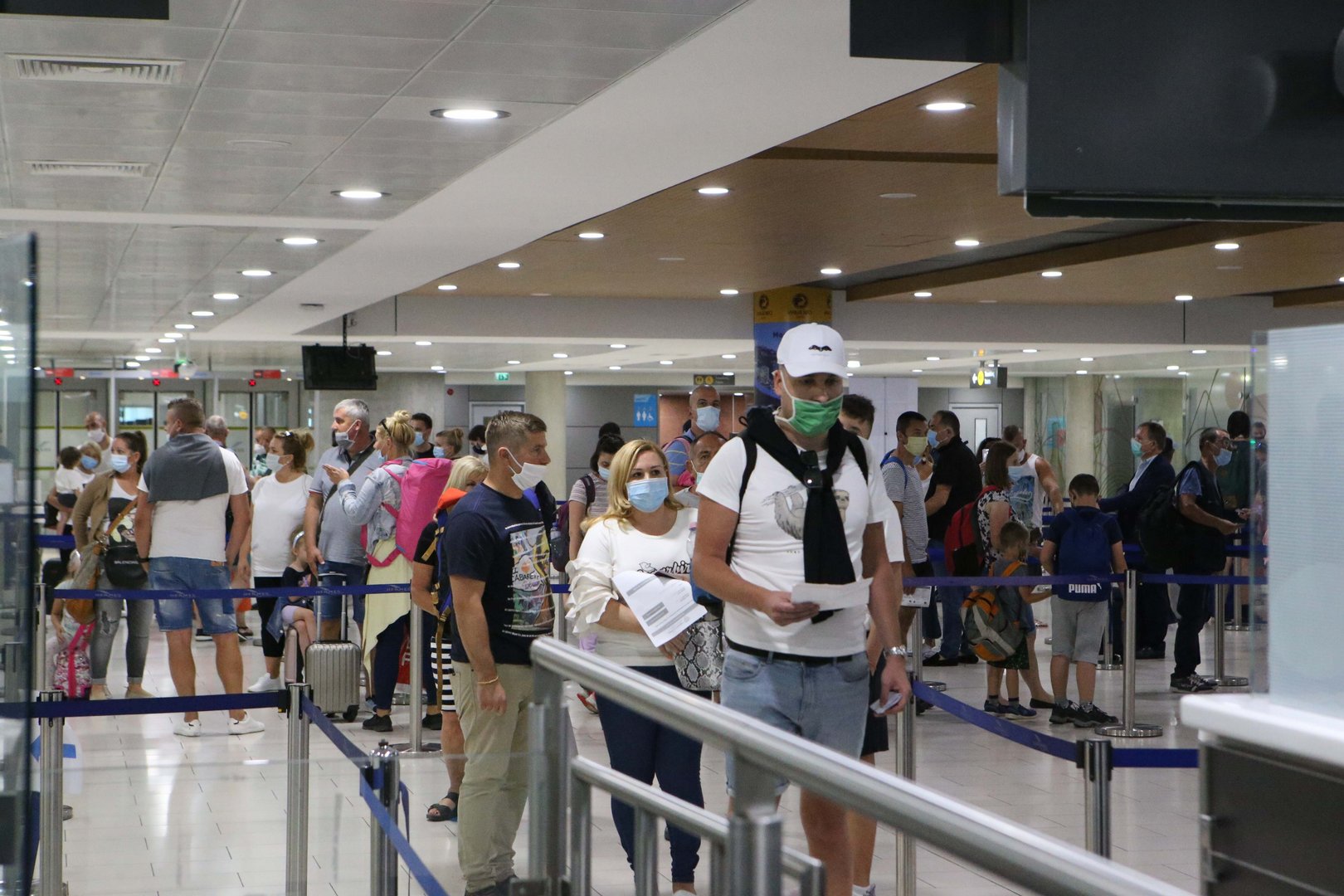Over the past five weeks, the highest number of coronavirus positives by age group belonged to the 6-17 bracket, the majority of all positives were tracked in the Nicosia district, while arrivals from the United Kingdom accounted for most of the confirmed and suspected cases of the Omicron variant.
The cumulative data, released by health authorities on Tuesday, concern the five-week period from November 13 to December 17.
During the first week (November 13 to 19) a total of 2,359 positives were tracked; with 2,547 positives the following week; 3,306 the next; 3,769 the one after that and 3,916 positives from December 11 to December 17.
A breakdown of the positives by age group showed that ages 6-11 and 12-17 consistently generated the highest number positives throughout the five-week reference period. The least positives by far came from the 80+ age bracket.
The data did not indicate the respective number of tests carried out per age bracket, in order to gauge the positivity rate for each separate age group. But daily bulletins issued by the health ministry consistently show that the positivity rate among schoolchildren (ages 6-17) is below the national or overall positivity rate from all tests in the country.
For instance, on December 17 a total of 10,886 tests in schools found 13 positives – representing a positivity rate of 0.12 per cent. On the same day, the national or overall positivity state stood at 0.84 per cent.
The data released Tuesday also showed that most cases came from the Nicosia district. For the last week of the reference period (December 11 to 17) Nicosia accounted for 1,645 cases, out of 3,916 throughout the country. Limassol came in second with 859 cases.
Authorities also said that they tracked 79 re-infections from tests done from December 11 to December 17. Of these, 11 people had a record of vaccination.
On ‘imported’ cases, tests at the airports found a total of 349 from December 11 to December 17. Most of these (196) came from the United Kingdom, followed by Greece (53).
Regarding cases of the Omicron variant specifically, during the reference period there were 30 cases confirmed through sequencing. Of these, 25 were ‘imported’, and among those 12 concerned cases from an educational trip to Scotland, with five more concerning primary and secondary contacts within their family environment.
The other eight of the 25 Omicron cases were unrelated to this cluster, but did have a history of travel. Their points of departure were the UK (five cases), Ethiopia via Greece (one case), France (one case), and the United Arab Emirates (one case).
In addition, during the week of December 11 to December 17, tests at airports found 89 suspected Omicron cases, which have been sent to labs for confirmation through sequencing. The majority (73) of these suspected Omicron cases arrived from the UK.
In response, on December 18 authorities revised the policy for arrivals from the UK, applying to everyone aged 12. In addition to undergoing a PCR test at the airport and self-isolating pending the result, passengers from the UK are issued five self-tests to use over the following days.
In the event that 72 hours after arrival in Cyprus a person has tested negative both for the PCR at the airport as well as to the self-tests, they must carry out a free rapid test at the health ministry’s mobile testing sites.
The ministry recommends that persons arriving in the Republic exercise particular caution during the first few days and avoid any physical contact with individuals belonging to vulnerable groups.
Finally, the data released by health authorities included information on clusters detected in the week from December 11 to December 17.
These were 20 cases at the Mintikis factory in Nicosia; six cases at the Limassol land registry office; five cases at QLS Laundry; three cases at MN Georgiou Maritime Services; and four cases at a birthday party.
As far as clusters in schools are concerned, 120 schools had at least one positive, 33 schools had at least two positives, and four schools had at least three positives.







Click here to change your cookie preferences